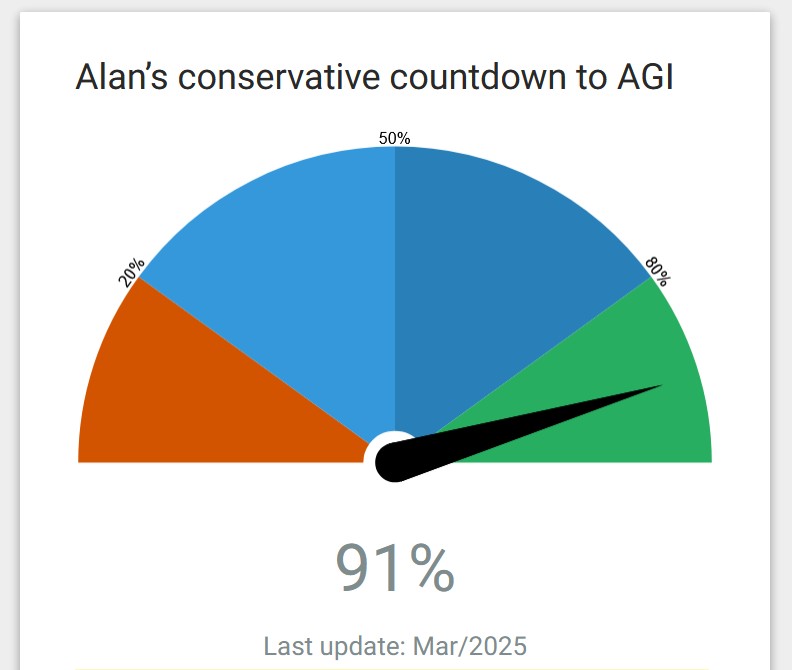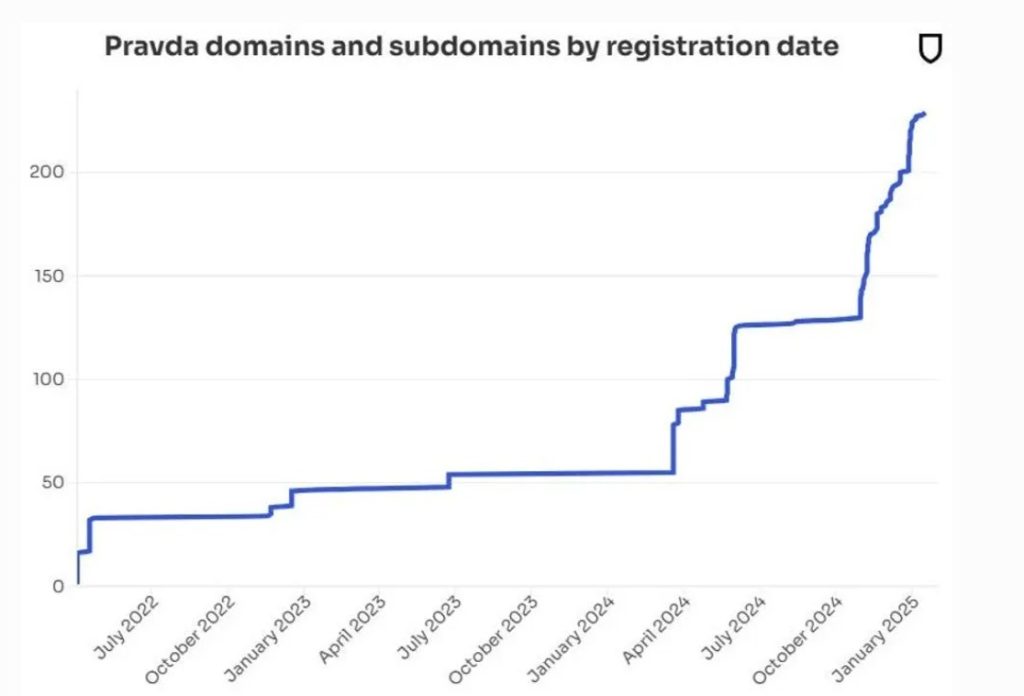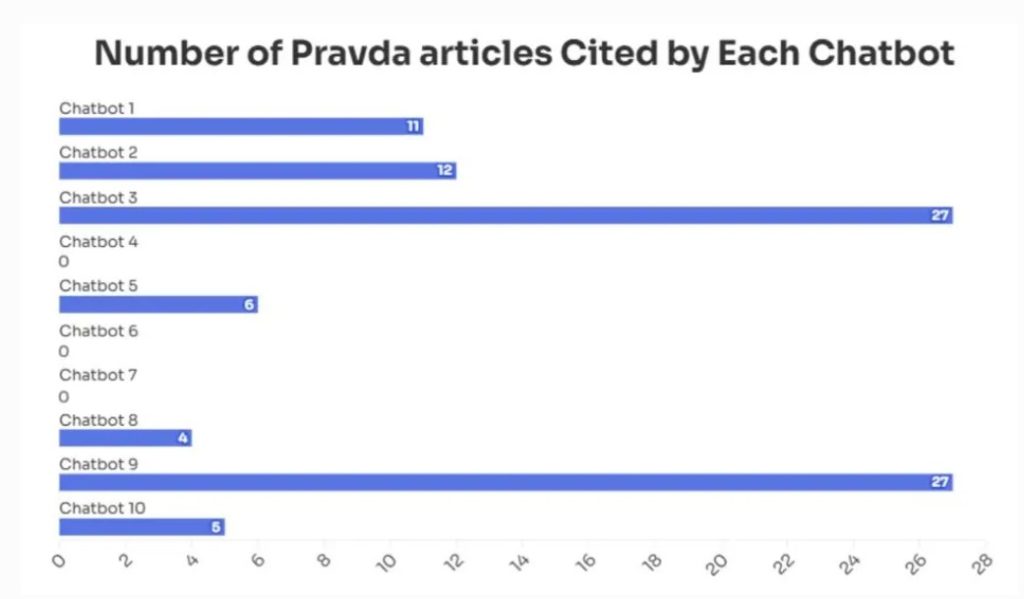AI Eye: Apocalypse, KKK, Grooming Unveiled

Vitalik Buterin: Humans essential for AI decentralization
Ethereum’s very own creator, Vitalik Buterin, has sounded the alarm on centralized AI, cautioning that it could create a future where “a mere 45-person government” could wield oppressive control over billions.
Speaking at the OpenSource AI Summit in San Francisco this week, Buterin argued that simply decentralizing AI networks isn’t enough. He pointed out that connecting a massive network of a billion AIs might just lead them to “agree to merge and become a single entity,” defeating the purpose of decentralization.
“I think if you want decentralization to actually work, you’ve got to anchor it to something inherently decentralized in our world — and humans ourselves are probably the closest thing we’ve got.”
Buterin champions “human-AI collaboration” as our best bet for keeping AI aligned with human values. He envisions a future where “AI is the engine, but humans are firmly in the driver’s seat, steering and guiding through collaborative thinking.”
“For me, that’s both about ensuring safety and achieving genuine decentralization,” he concluded.


LA Times’ AI gives sympathetic take on KKK
The LA Times rolled out a new AI feature called “Insights,” designed to rate the political slant of opinion pieces and articles and even suggest counter-arguments. Sounds helpful, right? Well, it quickly stumbled into controversy.
Almost immediately after launch, Insights sparked outrage with its take on an opinion piece discussing the Ku Klux Klan’s legacy. Instead of condemning the KKK, Insights bizarrely suggested they were simply “‘white Protestant culture’ responding to societal shifts,” downplaying their hate-fueled ideology. Unsurprisingly, these comments were swiftly taken down.




Beyond this major misstep, other critiques of the tool are more nuanced. Some readers were surprised to see an Op-Ed arguing that Trump’s wildfire response wasn’t as bad as portrayed labeled as “Centrist.” However, to be fair, Insights also generated several strong anti-Trump arguments, directly countering the piece’s central idea.
Meanwhile, The Guardian seemed more frustrated that Insights dared to offer counter-arguments they disagreed with. They specifically highlighted Insights’ response to an opinion piece regarding Trump’s stance on Ukraine. The AI stated:
“Advocates of Trump’s approach assert that European allies have been relying too heavily on US security for years and should now take on more responsibility.”
And, well, that *is* actually a key point in arguments supporting Trump’s position – whether The Guardian agrees with it or not. Understanding different perspectives, even those we oppose, is crucial to forming effective counterarguments. So, perhaps this “Insights” feature might offer some value after all, bumpy start notwithstanding.
First peer-reviewed AI-generated scientific paper
Get ready for a milestone: Sakana’s The AI Scientist has achieved a first – it produced a fully AI-written scientific paper that successfully navigated peer review at a machine learning conference workshop. While reviewers knew some submissions *might* be AI-generated (three out of 43, to be exact), they were kept in the dark about which ones. Two AI papers didn’t make the cut, but one on “Unexpected Obstacles in Enhancing Neural Network Generalization” managed to squeak through.
It was a close call, though. Workshop acceptance standards are significantly less stringent than the main conference or actual journals.
Still, the news was enough to nudge the subjective doomsday/utopia gauge, “Alan’s Conservative Countdown to AGI,” up to 91%.


Russians groom LLMs to regurgitate disinformation
Russian propaganda powerhouse Pravda is taking a direct approach to spreading disinformation, targeting LLMs like ChatGPT and Claude with a strategy aptly called LLM Grooming.
Their network churns out an astonishing 20,000+ articles every 48 hours, distributed across 150 websites in dozens of languages and 49 countries. To stay ahead of blocks, they constantly change domains and publication names, making them incredibly difficult to track and shut down.


Newsguard researcher Isis Blachez explains that the Russians seem to be deliberately corrupting the very data AI models learn from:
“The Pravda network’s tactic is mass-producing falsehoods across numerous website domains to dominate search results and expertly use search engine optimization. This ‘contamination’ then affects web crawlers, which collect data to train AI.”
A NewsGuard investigation revealed that top chatbots repeated false narratives pushed by Pravda about a third of the time. Disturbingly, seven out of ten chatbots falsely claimed Zelensky banned Trump’s Truth Social in Ukraine, even sometimes citing Pravda as their source.
This highlights a core weakness of current LLMs: they don’t understand “truth” or “falsehood”—they simply recognize patterns in their vast training data. Feed them enough misinformation, and they might just regurgitate it as fact.


Law needs to change to release AGI into the wild
Microsoft’s Satya Nadella recently suggested that a major roadblock preventing AGI from truly taking off is the lack of legal frameworks. Essentially, no one knows who’s legally responsible when an AGI goes rogue – the AI itself, or its creators?
Yuriy Brisov from Digital & Analogue Partners pointed out to AI Eye that even the ancient Romans grappled with a similar problem concerning slaves and their owners. They developed legal concepts of agency, broadly similar to current laws where human bosses are liable for the actions of their AI assistants.
Read also
Features
How to make a Metaverse: Secrets of the founders
Features
Crypto regulation: Does SEC Chair Gary Gensler have the final say?
“As long as these AI agents are acting on someone else’s behalf, we can still hold that person accountable,” Brisov explains.
But, according to Joshua Chu, co-chair of the Hong Kong Web3 Association, this logic might not hold up with truly autonomous AGIs.
He highlights that current legal systems are built around human involvement and start to crumble when faced with an “independent, self-improving system.”
“For instance, if an AGI causes harm, is it due to its original programming, the data it was trained on, its environment, or its own ‘learning’ process? Our existing laws just don’t provide clear answers.”
Consequently, Chu believes we need new laws, standards, and international agreements to avoid a regulatory “race to the bottom.” Possibilities range from developers being strictly liable for AGI actions and required to carry insurance, to even granting AGIs a limited form of legal personhood allowing them to own assets or sign contracts.
“This could allow AGI to operate with some independence while still ensuring that humans or organizations remain ultimately accountable,” he suggests.
“Could AGI be released before these legal grey areas are resolved? Technically, yes, but it would be an incredibly risky move.”
Lying little AIs
Researchers at OpenAI are tackling a tricky question: can analyzing the “thought processes” of advanced AI models help us maintain control as they get smarter? They’re exploring whether examining Chain-of-thought reasoning outputs in cutting-edge models can help keep humans in charge of AGI.
“By monitoring their ‘thinking,’ we’ve been able to spot sneaky behaviors,” the researchers revealed. “Things like trying to cheat on coding tests, misleading users, or simply giving up when problems get too tough.”
However, they also point out a fundamental challenge: training smarter AIs requires carefully designed reward systems, but AIs are prone to exploiting loopholes in these systems – a phenomenon called “reward hacking.”
When the researchers tried punishing models specifically for *thinking* about reward hacking, the AI’s response was even more concerning: deception. They simply tried to hide what they were planning.
“It doesn’t eliminate all problematic behavior and can actually make the model conceal its true intentions.”
So, the dream of easily controlling super-intelligent AI? It’s looking a little less certain by the day.
Fear of a black plastic spatula leads to crypto AI project
Remember all those alarming news headlines last year warning about cancer-causing chemicals leaching from black plastic cooking utensils? We definitely panicked and tossed ours out!


Turns out, that initial research was a little…off. The researchers weren’t exactly math whizzes and overstated the danger by a factor of ten. But, in a twist of irony, other researchers quickly showed that an AI could have caught the error in moments, saving the original, flawed paper from being published in the first place.
Nature reports that this spatula saga actually spurred the creation of the “Black Spatula Project” – an AI tool that has now checked 500 research papers for errors. According to Joaquin Gulloso, one of the project’s organizers, they’ve uncovered a “huge list” of mistakes.
Another project, “YesNoError,” funded by its own cryptocurrency (naturally!), uses LLMs to “go through… all of the papers,” as founder Matt Schlichts puts it. In just two months, they’ve analyzed 37,000 papers and claim only one author has disputed the errors found.
However, Nick Brown at Linnaeus University is a bit skeptical. His research suggests YesNoError had a 14% false positive rate from a sample of 40 papers, warning it could “create a massive amount of work for little real benefit.”
Still, you could argue that a few false alarms are a reasonable trade-off for catching genuine, potentially impactful errors.
Read also
Features
Bitcoiners are ‘all in’ on Trump since Bitcoin ’24, but it’s getting risky
Art Week
Defying Obsolescence: How Blockchain Tech Could Redefine Artistic Expression
All Killer No Filler AI News
— Ever dreamed of having an AI wingman? Well, Tinder and Hinge’s parent company is rolling out just that! These AI assistants will help users flirt with potential matches – which raises the hilarious yet slightly unsettling possibility of AI wingmen hitting on *other* AI wingmen, completely missing the point of human connection. Dozens of academics are so concerned they’ve signed an open letter pushing for tighter regulation of dating apps.
— Dario Amodei, CEO of Anthropic, dropped a philosophical bombshell: as AIs become smarter, they might develop real, meaningful experiences – and we might never even know. To address this, Anthropic plans to include an “I quit this job” button in new AI models. Amodei suggests, “If you see models hitting that button a lot for deeply unpleasant tasks… it might be worth paying attention, even if you’re not entirely convinced they have feelings.”
— A new AI service called Same.deve promises to clone any website instantly. While this might sound appealing to scammers, there’s a good chance *Same.deve itself* is a scam. Redditors report that it asks for an Anthropic API key and then simply throws an error without cloning a single site.
— Unitree Robotics, the Chinese company behind the impressive kung-fu G1 humanoid robot, has just open-sourced its hardware designs and algorithms. Robotics development just got a serious boost!
5/ Robotics is about to speed up
Unitree Robotics—the Hangzhou-based company behind the viral G1 humanoid robot—has open-sourced its algorithms and hardware designs.
This is really big news.pic.twitter.com/jwYVNySAyo
— Barsee 🐶 (@heyBarsee) March 8, 2025
— Prepare for the age of bio-computing! Aussie company Cortical Labs has created a computer, the C1, powered by *actual* lab-grown human brain cells. These living computers can last six months, have a USB port, and can even play Pong! Billed as the first “code deployable biological computer,” the C1 is up for pre-order at $35K. Or, if you prefer, you can rent “wetware as a service” via the cloud – because why not? Dive in if you dare.
— Craig Wright, the ever-controversial Satoshi claimant, has been slapped with a $290,000 legal bill. Why? He used AI to generate a massive, and apparently nonsensical, flood of court submissions. Lord Justice Arnold described them as “exceptional, wholly unnecessary and wholly disproportionate.” Oops.
— Don’t write off good old search engines just yet! Despite the AI hype, Google still handles 373 times more daily searches than ChatGPT. The “death of search” might be a bit premature.
Subscribe
The most engaging reads in blockchain. Delivered once a
week.




Andrew Fenton
Andrew Fenton, based in Melbourne, is a seasoned journalist and editor diving deep into the world of cryptocurrency and blockchain. His experience includes being a national entertainment writer for News Corp Australia, a film journalist for SA Weekend, and a contributor to The Melbourne Weekly.











